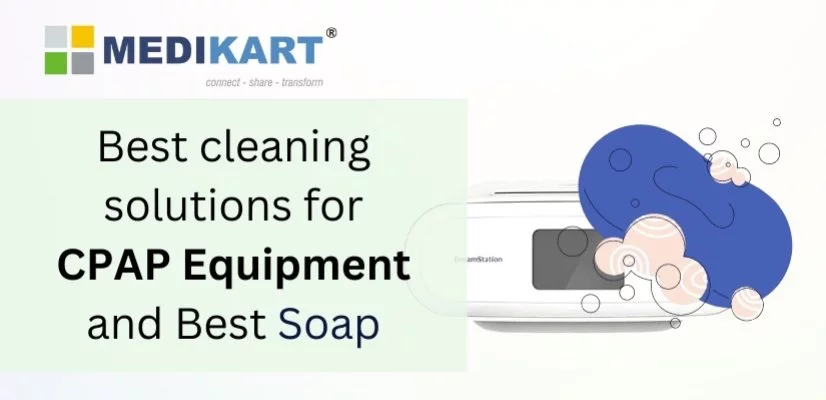Sleep apnea, a serious breathing disorder, is commonly treated with continuous positive airway pressure (CPAP) appliances. While CPAP devices are an excellent technique to treat sleep apnea, they do require regular maintenance and cleaning.
Why do we need to clean our CPAP machines?
Cleaning your CPAP machine on a daily basis ensures that harmful germs, mildew, dust, and debris are removed, ensuring that your CPAP treatment improves rather than worsens your health, given that the mask, tubing, and other components are breathed into and distributed air all night. Daily cleaning may seem daunting, but it is a simple task that you can easily include in your daily routine.
A dirty CPAP can expose you and your device to hazardous germs, viruses, and mould, resulting in:
- Sinus infections
- Increased Allergy Symptoms
- Facial Irritation/Rashes
- Mineralization of the Equipment Can Cause It to Break Down Too Soon
Cleaning your CPAP is not only good for your health, but it may also save you money on replacement components and supplies by extending your CPAP life expectency
How to clean your CPAP equipment
- Soak the majority of the tubing in warm, soapy water for a few minutes to clean it. Ensure to immerse the inside of the tube in the water long enough for the soapy water to fill it entirely.
- Some hoses are cleanable in the same way that tubing is. Hoses having electrical components, such as heated hoses, must, however, be cleaned with greater care. If you’re using a heated hose, read the manufacturer’s instructions carefully for more information on how to maintain it clean.
- Each part of your mask should be washed with mild soap separately. Face and hair oils are particularly prone to staining the cushion and headpiece.
- Fill humidifier tanks with a mix of equal parts warm water and white vinegar to sterilise them. While you clean the rest of your CPAP components, let the tank to soak to allow the vinegar to do its job.
Tips and Precautions
It’s critical to maintain your tools clean. Keep in mind that you are inhaling whatever is growing inside. Follow these guidelines:
- If you’ve lately been ill, clean your equipment more frequently.
- When it comes to cleaning your CPAP, always follow the advise of your medical and equipment providers, as well as the manufacturer’s guidelines.
- On your equipment, just use soft soap and no scents or cleaning solutions. These can irritate your lungs and cause you to become ill. To avoid mineral buildup in the water chamber, the humidifier must only use distilled water.
- Cleaning your equipment in a dishwasher or washing machine is not recommended because it may be damaged.
Best soap to use while cleaning your CPAP equipment
The ideal soap to use while cleaning your CPAP mask, tubing, and other machine parts is a gentle, mild soap. Cleaning your CPAP with a mild soap can help you avoid any equipment damage as well as irritation to your face and lungs.
In this post, we will explain what to look for and what to avoid when cleaning your CPAP mask and equipment, and we will also give you a list of our favorite picks. Not all soaps are made equal, but we will help you find the right one for your needs.
Best dish soap: Ivory Concentrated Dishwashing Detergent
Best for Allergies and Sensitive Skin: Johnson’s Baby Shampoo
Disclaimer
The information provided is for general knowledge only. Consult your doctor for personalized advice and treatment. Medikart HealthCare not liable for any actions taken based on this info.

